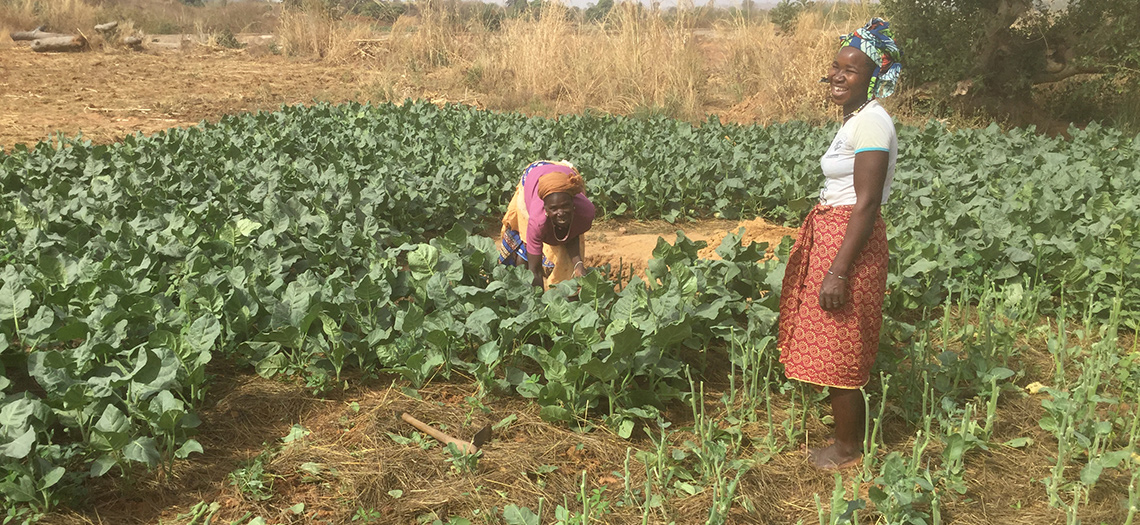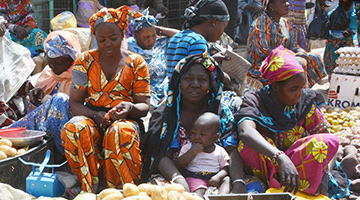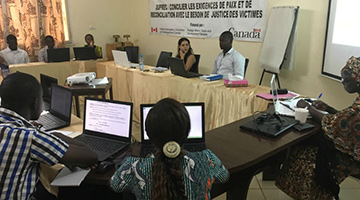Irrigation for food, better health, jobs and bringing people together
Two women working in a field. | Photo credit: Embassy of Canada to Mali
“Before heading out early to your fields, may luck get there first.” – Malian proverb
 In collaboration with its partners, Canada is funding the construction and rehabilitation of hydro-agricultural infrastructures in Mali, which provides producers with access to irrigated land. | Photo credit: Embassy of Canada to Mali
In collaboration with its partners, Canada is funding the construction and rehabilitation of hydro-agricultural infrastructures in Mali, which provides producers with access to irrigated land. | Photo credit: Embassy of Canada to MaliIn Mali, farmers are on the front lines of a daily battle against food insecurity and poverty.
Most family farms earn their income from rain-fed farming, which is at the mercy of the unpredictable weather. In the Saharan zone, families may farm only three months a year.
In recent years, in the Koulikoro, Mopti and Timbuktu regions, the practice of small-scale irrigation has changed everything.
Farmers have created hydro-agricultural development with Canadian support and Germany’s cooperation. Micro-dams, weirs and irrigation for market gardening: such irrigation systems now allow for two harvest cycles a year.
Families earn more income and are healthier.
“Before, we only produced some shallots and a few peppers,” says Bollo Yattara, who is from the Mopti region. “With the equipment and guidance we received, we are now producing potatoes too. What we don’t eat, we sell to cover other needs.”
“Before, there was too much illness in the village, and we spent a lot on medication,” says Aminata Traoré, of Korkabougou. “But that has dropped considerably because malnutrition has declined, particularly among children.”
The project has strengthened these communities. The rural exodus of youth is declining. Some are returning to their villages, where better social and economic conditions await them.
And women are participating fully in the economic growth of their communities. Their savings, which they keep in tontines—shared accounts that they make available to families in case of need—is another element of social cohesion.
By irrigating the land, we can improve nutritional health, create jobs, increase income and bring people together.
Between 2014 and 2017, Canada financed the construction and rehabilitation of 250 hydro-agricultural infrastructure developments in Mali. These projects provided access to irrigated land for almost 25,000 producers, 30% of them women. By the end of the project, increased rice production should meet the nutritional needs of more than 232,000 people and market farming should feed 580,000 people each year.
Related Links
- Date modified:



